
The agent will aim to be the first and only FDA-approved liquid formulation of topiramate, with a PDUFA date set in Q3 of 2021.

The agent will aim to be the first and only FDA-approved liquid formulation of topiramate, with a PDUFA date set in Q3 of 2021.

The director of the Healey & AMG Center for ALS spoke to the recent topline results of a phase 3 study of NurOwn in patients with the neuromuscular disease.

Here's what is coming soon to NeurologyLive.

The director of the Mid-Atlantic Epilepsy and Sleep Center urged physicians to try and find the right medications for their patients as early as possible.

Both ongoing ACT-AD and LIFT-AD studies are assessing Athira’s investigational therapy ATH-1017.

Researchers from the University of Turin also found that an NEFH variant showed a protective association with ALS.

Take 5 minutes to catch up on NeurologyLive's highlights from the week ending January 1, 2021.
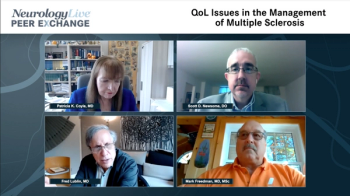

The neurologist from the Comprehensive Epilepsy Care Center for Children and Adults, in St. Louis, Missouri, discussed how his team succeeded at titrating cenobamate early in the study.

"Mind Moments," a podcast from NeurologyLive, brings you an exclusive interview with Leigh Charvet, PhD.
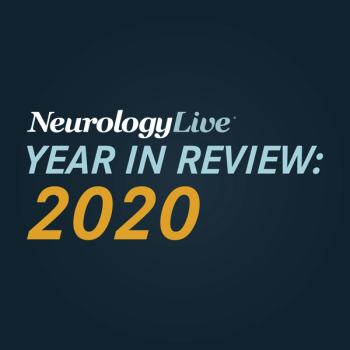
Catch up on the best and most listened to episodes of the NeurologyLive Mind Moments podcast, featuring exclusive interviews with experts in neurology.

Increasing the use and accessibility of mechanical thrombectomy may reduce the burden of stroke on a global scale.
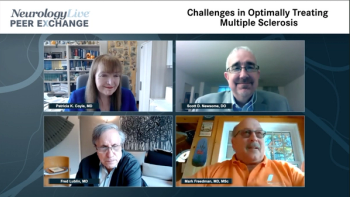

The director of the Mid-Atlantic Epilepsy and Sleep Center urged physicians to actively look for new medications for patients to try.

"Mind Moments," a podcast from NeurologyLive, brings you an exclusive interview with Jennifer Frontera, MD, and a number of others.

Look back on some of our most popular video interviews with experts in the field, including discussions on stroke, migraine, Parkinson disease, dementia, and more.

Patients with MS have an urgent need for therapies that can reverse neurologic disability by promoting remyelination, and RGMa inhibition may help meet that need.

The research scientist from the University of Texas Medical School discussed some of the challenges and opportunities that machine learning presents in patient care.

Jennifer Robblee, MD, neurologist, Barrow Neurological Institute, shares her takeaways about how migraine care shifted this year and how it may continue to shift going forward.

The approvals introduced several new agents into a number of patient populations, including much-needed additions to some diseases lacking a large number of options.

Digital biomarkers offer promise to revolutionize the diagnosis and treatment of Alzheimer disease via our increasing ability to gather active and passive data.

The neurologist from the Comprehensive Epilepsy Care Center for Children and Adults, in St. Louis, Missouri, discussed how his team studied the interactions of ASMs and cenobamate.

In a NeurologyLive® Peer Exchange, a panel of migraine specialists discussed the novel therapies in development and those entering the market for the treatment of acute migraine.

Catch up on some of our most popular Peer Exchange panels with experts in the field, including discussions on epilepsy, migraine, multiple sclerosis, and more.
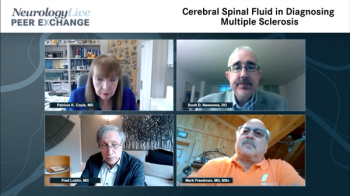

Guest Editor-in-Chief Karl Doghramji, MD, FAASM, DFAPA, discusses the recent steps forward that have been made in the care of patients with insomnia.

The director of the Mid-Atlantic Epilepsy and Sleep Center also noted how serious adverse effects from treatment can be detrimental to patients’ lives.
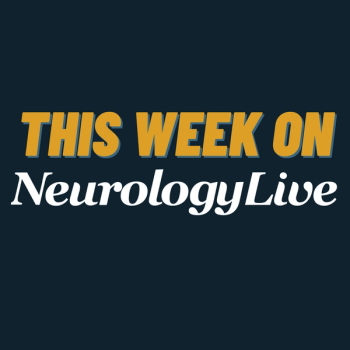
Here's what is coming soon to NeurologyLive.
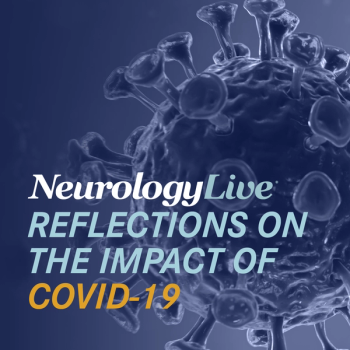
NeurologyLive compiled a number of interviews and conversations with leaders within the neurology community to discuss the neurologic symptoms associated with COVID-19.

The research scientist from the University of Texas Medical School discussed how he would like to use machine learning to aid in prediction and prophylactic treatment.